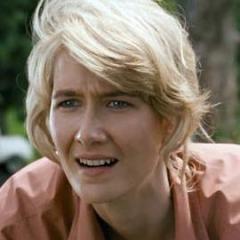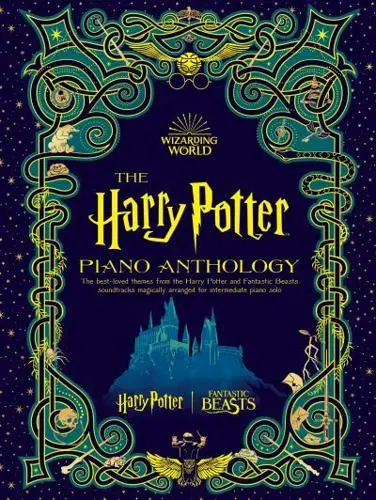-
Posts
100 -
Joined
-
Last visited
Profile
-
Location
Ireland
Recent Profile Visitors
The recent visitors block is disabled and is not being shown to other users.
-
 ConorPower reacted to a post in a topic:
Academy of Scoring Arts talk - Raiders of the Lost Ark Score Study Part I
ConorPower reacted to a post in a topic:
Academy of Scoring Arts talk - Raiders of the Lost Ark Score Study Part I
-
 ConorPower reacted to a post in a topic:
"John Williams: Adventures on Earth" - Biography by Tim Greiving
ConorPower reacted to a post in a topic:
"John Williams: Adventures on Earth" - Biography by Tim Greiving
-
 ConorPower reacted to a post in a topic:
"John Williams: Adventures on Earth" - Biography by Tim Greiving
ConorPower reacted to a post in a topic:
"John Williams: Adventures on Earth" - Biography by Tim Greiving
-
 ConorPower reacted to a post in a topic:
"John Williams: Adventures on Earth" - Biography by Tim Greiving
ConorPower reacted to a post in a topic:
"John Williams: Adventures on Earth" - Biography by Tim Greiving
-
 ConorPower reacted to a post in a topic:
"John Williams: Adventures on Earth" - Biography by Tim Greiving
ConorPower reacted to a post in a topic:
"John Williams: Adventures on Earth" - Biography by Tim Greiving
-
 ConorPower reacted to a post in a topic:
"John Williams: Adventures on Earth" - Biography by Tim Greiving
ConorPower reacted to a post in a topic:
"John Williams: Adventures on Earth" - Biography by Tim Greiving
-
 ConorPower reacted to a post in a topic:
Steven Spielberg is Making a John Williams Documentary
ConorPower reacted to a post in a topic:
Steven Spielberg is Making a John Williams Documentary
-
 ConorPower reacted to a post in a topic:
Steven Spielberg is Making a John Williams Documentary
ConorPower reacted to a post in a topic:
Steven Spielberg is Making a John Williams Documentary
-
 ConorPower reacted to a post in a topic:
Steven Spielberg is Making a John Williams Documentary
ConorPower reacted to a post in a topic:
Steven Spielberg is Making a John Williams Documentary
-
 ConorPower reacted to a post in a topic:
Steven Spielberg is Making a John Williams Documentary
ConorPower reacted to a post in a topic:
Steven Spielberg is Making a John Williams Documentary
-
 Yavar Moradi reacted to a post in a topic:
New Podcast Series: The Complete John Williams Television Music Walkthrough
Yavar Moradi reacted to a post in a topic:
New Podcast Series: The Complete John Williams Television Music Walkthrough
-
Thanks for the review @The Lost Folio! Looking forward to picking it up
-
 Badzeee reacted to a post in a topic:
John Williams and Aaron Copland
Badzeee reacted to a post in a topic:
John Williams and Aaron Copland
-
 That_Bloke reacted to a post in a topic:
The John Williams Piano Collection
That_Bloke reacted to a post in a topic:
The John Williams Piano Collection
-
Oh, yes of course! He’s not an island. “Graveyard” from The Cowboys kind of has that sense of stasis and space, but doesn’t foreground woodwind so much. Same with “Oklahoma Territory” in Far and Away. They’re not quite the same as the Copland sound though.
-
 Trope reacted to a post in a topic:
John Williams and Aaron Copland
Trope reacted to a post in a topic:
John Williams and Aaron Copland
-
 ragoz350 reacted to a post in a topic:
John Williams and Aaron Copland
ragoz350 reacted to a post in a topic:
John Williams and Aaron Copland
-
 Jurassic Shark reacted to a post in a topic:
John Williams and Aaron Copland
Jurassic Shark reacted to a post in a topic:
John Williams and Aaron Copland
-
 Thor reacted to a post in a topic:
John Williams and Aaron Copland
Thor reacted to a post in a topic:
John Williams and Aaron Copland
-
It was basically all about JW’s American sound, looking at many of the scores mentioned in the thread, particularly anything martial, pastoral, hymnal. I was trying to assess how Williams channels his American predecessors: what musical traits does he borrow, which are his own etc. And I also explored how his Americana might encourage a viewer/listener to look at the US from a particular perspective - for example, the hymnal character of Lincoln essentially deifies the president throughout. The conclusions were basically that Williams has assimilated numerous American voices into his own, and might now even be a reference point for modern audiences’ understanding of what the US “sounds” like. I also tried to question/critique whether or not his role as a patriotic composer might occasionally supersede his filmic duties (I think that’s glaringly obvious at the end of Midway and in his approach to Lincoln), and address that the sound of America only represent an ideal of America. It was called Composing America: Patriotism, Mythology, and Piety in the Film Scores of John Williams. Currently doing some small scale corrections following my defence! Nearly finished with it! Thanks for the expression of interest @Jurassic Shark! You actually really helped me out at a pivotal stage when selling me the Lincoln piano folio, that was really helpful for some of my analysis.
-
 Jurassic Shark reacted to a post in a topic:
John Williams and Aaron Copland
Jurassic Shark reacted to a post in a topic:
John Williams and Aaron Copland
-
With difficulty - haha! The term has been used so much it’s grown far beyond Copland and it’s a collection of different sounds/styles - hymnal, pastoral, heroic, patriotic, stark - rather than one consistent thing. Nor are any of these sounds purely attributable to Copland either, Williams has done much for their popularity alongside other composers of westerns + Hugo Friedhofer, Jerome Morros, Elmer Bernstein, Virgil Thompson etc. But I think JW’s Coplandesque scores - the really good ones: like The Cowboys, Lincoln, SPR - go beyond just co-opting a Copland sound, but rather blend together all of these influences/traditions. It’s just that Copland has become the de facto frame (that’s not to say an inappropriate one!) through which we discuss this sound that it’s hard to address any musical Americana without citing him (see title of this thread as proof 😂) @Trope & @Jurassic Shark btw, great (& short) video essay on Williams and Copland (& Horner) here: It also speaks to some of the distinctions/separations of AC sound which @Thor alluded to.
-
 Falstaft reacted to a post in a topic:
John Williams and Aaron Copland
Falstaft reacted to a post in a topic:
John Williams and Aaron Copland
-
 Jurassic Shark reacted to a post in a topic:
John Williams and Aaron Copland
Jurassic Shark reacted to a post in a topic:
John Williams and Aaron Copland
-
This was always at the forefront of my mind when digging into the JW & AC connections for my PhD (which I passed 3 week backs 🥳!). Never found anything to prove it though, but I’m sure they must have crossed paths at Tanglewood or through Bernstein in the 70s or early 80s, or even through Herrmann earlier on, he studied with AC for a time. Most of the go-to examples have been named, but I’d add: The final tracks of The Post, which become very earnest and Coplanesque. Lots of the fanfares - Liberty Fanfare, Olympic Fanfare and Theme - obviously owe a large debt to Copand’s Fanfare for the Common Man, but they obviously suggest starkly different feelings to Lincoln, SPR etc. Then there’s the more rustic Rodeo-inflected sound evident in parts of Lincoln; and stuff like “Follow Me” from Always and “Isabelle’s Horse and Buggy” in Stepmom. In a similar vein, @Thor pointed me toward a vibrant insert Williams added to The Mission, which is also in that same spirit. Can’t recall where to find it though!
-
Agreed! I'd especially appreciate the ToD pieces as I don't own theme, but at least we're getting something from DoD. Again, agreed! This feels slight by comparison to those. At least the difference is reflected in the price though. They're pretty much the same as the SW: A Musical Journey (Episode I-VI) book and the folios for the sequels. Still, its beautifully presented in a sleek hardback (not ideal for balancing on the piano's music stand) with a nice note from Mike Matessino on the piano and SW. It was a must-buy for me as it had numerous arrangements of PT tracks which were absent from SW: A Musical Journey. If, like me, you never had folios for Eps I-VI then its worth it, IMO.
-
What a great interview! Nice having an interviewer asks more questions about his early musical experiences rather than going straight to the usual fair. Also, love JW’s increasingly poetic descriptions of the importance of music to his life: I have to write every day for an hour or two at least, to feel like my breathing is right and things are balanced in life.
-
That’s entirely fair and a good point actually. It must be fun tailoring it to your own likes/skills. This will do me for now (thanks @Falstaft!). But I do agree, that the simplicity to Jane Eyre is what really makes it - similar to Heidi and Lincoln, I suppose.
-
On the note of folios, and in light of recent releases, I'm wondering if anyone is able to share piano sheet music to Jane Eyre or if anyone has arranged anything of Heidi? (I'm to lazy to transcribe)
-
I find those Rosewood spirituals very UnWilliamsy! I suppose it might be hard to pin down what makes his vocal music sound like Williams – given that their isn't too much of it. But 'Look Down, Lord' and 'Freedom Train' are so unlike any of his other vocal work (for film) that they always astound me; maybe that's because he wrote the lyrics too (another rarity in a rarity)?
-
This has actually still been bugging me, so thank you for returning to it. I definitely hear the likeness but still not what I’m after sadly. You might be on to something regarding it’s Spanish flavour - maybe it’s from an opera? Apologies for the crude/hurried transcription. This is the rhythmic likeness I hear and a continuation of it in whatever piece it’s from. Particularly when I hear the Panama Hat statement I reference above, I hear it continuing in this manner. I know it’s staring me right in the face; I don’t believe it’s particularly obscure. I’ll kick myself once it reveals itself.
-

RAIDERS OF THE LOST ARK - Live to Projection Concerts
ConorPower replied to Incanus's topic in JOHN WILLIAMS
Again, I agree with @Martinland’s assessment of the evening. Really tight and balanced performance on a whole. The Map Room is my favourite cue, and the absence of a live choir didn’t affect my enjoyment of the sequence in the slightest. I did pick up on the synth choir and thought it blended quite well, and didn’t stick out in an irritating manner. I see a choir will be used for the Home Alone concerts in Dublin in December - very excited to see how that’s handled. The last LTP concerts I saw with choir were all the LoTR. A high standard was set!! -

RAIDERS OF THE LOST ARK - Live to Projection Concerts
ConorPower replied to Incanus's topic in JOHN WILLIAMS
@Martinland Agreed! A great show altogether.




